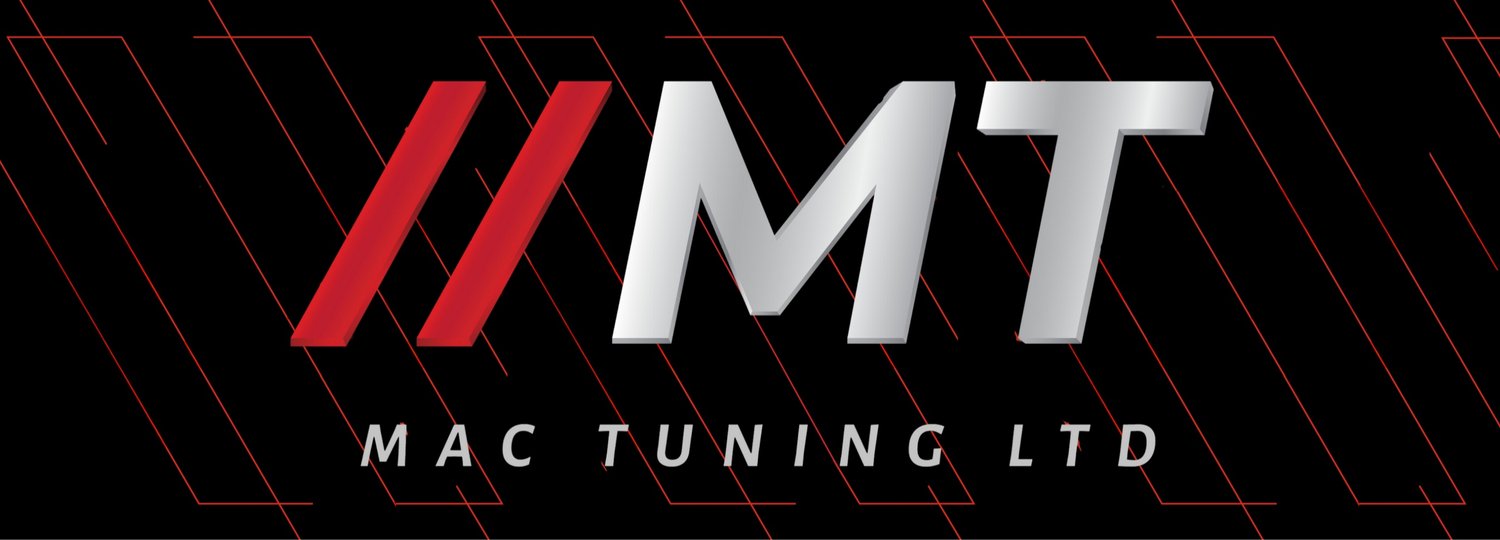Tuning Booked! Here’s what you need to know:
If you've booked an appointment to have your car tuned, congratulations on taking the exciting step towards enhancing your vehicle's performance! To ensure a smooth and successful tuning session, there are a few important things you can do in preparation. Here's a helpful guide to get you ready for the big day:
1. Understand Your Tune:
Before heading to your appointment, make sure you have a clear understanding of the type of tuning you've selected. Whether it's a Stage 1 or Stage 2 tune, knowing what to expect will help you appreciate the changes in your vehicle's performance. If you have any questions the please message us and we’ll be happy to help, we can of course answer any questions on the day also.
2. Any Present Issues?:
It’s important you tell us about any current issues with the car or anything big in its history. This can affect the tuning and our processes in which we work on your car. Tyre pressure light doesn’t work? That’s ok, we’ll likely ignore that. Been through an auction and previously written off with a replacement ECU fitted…We probably wont ignore that! We’re sure you get the idea.
3. Ensure the Car is in Good Condition:
A well-maintained vehicle is crucial for optimal tuning results. Check the basics such as oil levels, coolant, and brake fluid. Address any existing mechanical issues to ensure your car is in top shape for the tuning session. Failure to ensure the car is in good condition means it’ll likely not achieve the expected power. We will of course do our own checks and diagnostic sessions on the vehicle prior to tuning. However, we do advise the vehicle is independently inspected by a specialist to have things such as turbos etc looked at prior to tuning.
4. Fuel type:
For petrol vehicles, your car will need to run on Shell V-Power or Tesco Momentum (E5 99 Octane) after our tuning at all times. This ensures the fuel used is matching the tuning and specifically the ignition timing we've set. Higher octane fuel is also more resistant to Engine Knock meaning safer running and more power.
For Diesel vehicles, just continue to use the fuel you regularly use anyway. We advise using the premium brands such as Shell, BP, ESSO etc instead of supermarket fuel bar Tesco.
5. Please Arrive on Time:
Arriving on time is crucial to how we manage our bookings and run our day. You will of been given a timeslot for your tuning session, please ensure you arrive NO EARLIER than 10 minutes before that session. Managing vehicles on our site can become problematic with excess vehicles in the way. We are also unlikely to be able to start your tuning any earlier than specified.
Similarly please also ensure you do not arrive late. We understand circumstances out of your control, if you’re running late then get in touch. If you arrive LATER THAN 20 MINUTES after your booking, we may not be able to fit you in, your appointment may be cancelled and deposit lost, ensure you contact us as soon as possible if you’re running late.
6. Charge Your Battery:
Ensure your car's battery is adequately charged. A stable electrical system is crucial during tuning, and a charged battery helps prevent any disruptions.
7. Have Realistic Expectations:
While tuning can significantly enhance your car's performance, it's essential to have realistic expectations. Discuss your goals with us and be open to our recommendations for achieving the best results.
8. Allow Sufficient Time:
Tuning usually takes around 60-90 minutes however sometimes longer if we encounter complex issues. This allows us to thoroughly assess and adjust various parameters for optimal performance. Once the tuning process has begun, it often cannot be stopped or sped up until completion. Allow the relevant time for us to complete our work.
9. Need to Cancel Or Reschedule?:
Please ensure you provide us with as much notice as possible. For more in depth information on this, please read our terms and conditions in full which cover notice periods, fees and deposits.
10. Tuning Complete…Be Patient:
The tuning is finished and of course you want to jump straight into the car and fly off. However this isn’t always possible and is definitely not advisable. After tuning, the vehicle will need to be given time to adjust to its new software and parameters. We normally advise to undertake normal and smooth driving for the first 150-200 miles after tuning. This ensures that all sensors are working correctly and are feeding the relevant data back to the ECU and other modules as expected.
Tuning and raising a vehicles power and performance can bring to light underlying issues with sensors or hardware that otherwise would never of been found. Sometimes parts are just near the end of their serviceable life and by upping the power, the part simply cannot keep up with its new raised demand and a new part is required. This is rare but can occur on older vehicles, so ensure you give the car time to adjust before any harsh accelerations.
By taking these steps before your appointment, you're not only ensuring a smoother tuning process but also setting the stage for a more enjoyable driving experience once your car is tuned to perfection. Safe travels and happy driving!
